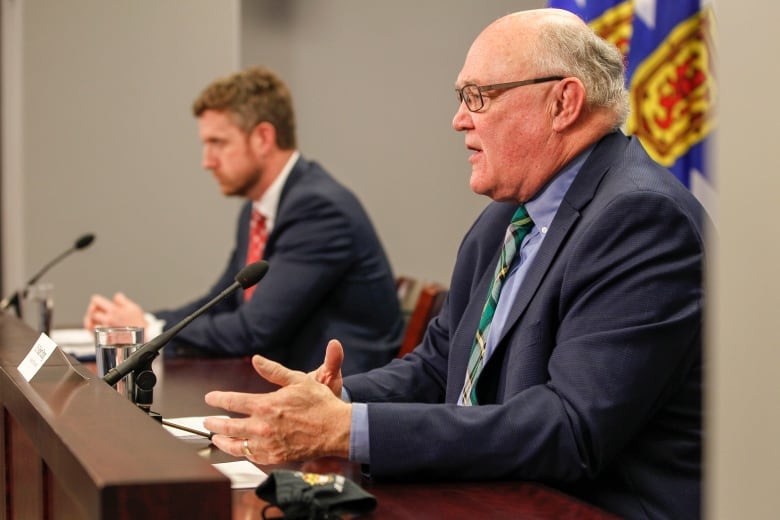N.S. Court of Appeal highly critical of 2021 injunction to prevent protests against COVID-19 vaccines
Decision released Wednesday said the province should not have applied for such a sweeping ban

Nova Scotia's highest court says the previous provincial Liberal government went too far in its efforts to contain an anti-vaccine protest in May of last year.
In a decision released Wednesday, the Court of Appeal said the province should not have applied for an ex parte injunction and a lower court should not have granted such a sweeping measure.
The injunction was sought on May 14, 2021. It was aimed at heading off planned protests that were to be held that weekend on Citadel Hill in Halifax, at Alderney Landing in Dartmouth and at the Barrington Baseball field.
Because is was an ex parte application, the province was not required to notify anyone ahead of time that it was seeking the injunction, although it named some groups and individuals, including Amy Brown, Dena Churchill and Freedom Nova Scotia as respondents.

The injunction was eventually lifted, and the province tried to argue that the court action should end there. But the Court of Appeal agreed to hear an appeal by the Canadian Civil Liberties Association, saying the case raised important issues of rights and freedoms that did not die with the lifting of the injunction.
In their decision, the three members of the Court of Appeal panel ruled the province's original injunction request was too broad and should have been limited to the three specific protests.
"The injunction not only applied to those who were anticipated to contravene the public health order on May 15, 2021, but also to everyone in the province at any time in the future," the court wrote.
The judges said the province could have given at least some of the respondents a chance to respond to the injunction application as they had identified them and were tracking them through their social media.
"The attorney general cannot be coy about material facts," the judges wrote. "Moving parties who proceed without notice control the record because they invite no one else to court. It was not 'balanced' or 'accurate' to allude to but not describe crucial evidence necessary to weigh whether an injunction was justified."

The court also criticized evidence provided by Chief Medical Officer of Health Dr. Robert Strang, saying he went too far in his affidavit in describing the potential risk of these outdoor gatherings.
"[O]ffering an opinion on future risk flowing from disregard of the public health order, on which the judge relied for an 'irreparable harm' finding, was a bridge too far," the judges wrote.
"Dr. Strang should not have been qualified to offer an opinion on that risk."
The decision by Justices Duncan Beveridge, Peter Bryson and Joel Fichaud was unanimous, but the justices offered different reasons for reaching their conclusions.
Premier plans to review court decision
The Canadian Civil Liberties Association said it's pleased with the court's decision, and that there could be implications for other protests.
"This was an important legal principle that we wanted to pursue, that governments shouldn't be able to go to court and get this broad anti-protest order without having compelling evidence, and without the order being appropriately tailored to the circumstances," said Cara Zwibel, director of the fundamental freedoms program at the association.
Premier Tim Houston said he plans to review the court's decision, but added that he believes the intention of the previous government was to keep people safe.
"At the time, governments were doing what they believed was necessary to keep people safe," Houston told reporters on Wednesday.
"And I do believe in my heart that's what the motivation of government was at the time. I have no interest in going back and second guessing and re-litigating those decisions."
With files from Michael Gorman